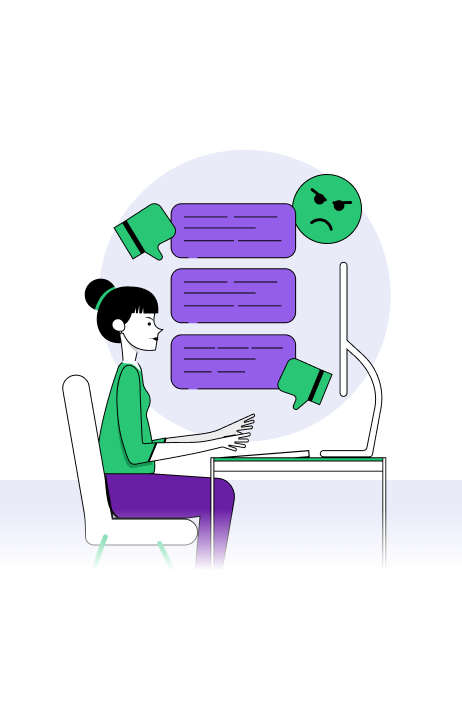
The psychology of trolling: What motivates people to leave mean comments?
The psychology of trolling has been widely studied and is often associated with psychopathy, sadism, anti-social behavior, manipulation, narcissism, and Machiavellianism. Trolling is a phenomenon that has been present on the internet since its early days. It involves individuals deliberately posting provocative or offensive messages with the intent of eliciting a reaction or causing distress to others. This behavior can take many forms, such as insulting comments, harassment, or even threats.
According to a survey conducted by the Pew Research Center, 28% of American adults reported that they had experienced some form of online harassment. Of those who experienced online harassment, 73% reported that they had witnessed someone else being harassed, and 40% reported that they had been the target of severe forms of online harassment, including physical threats and stalking.
In this blog post, we will explore the psychological factors that motivate people to leave mean comments online.
- Anonymity: The anonymity provided by the internet is a key factor in motivating people to troll. Being anonymous makes it easier for trolls to express their negative emotions without fear of reprisal or being held accountable for their actions. In fact, studies have shown that people are more likely to engage in negative behavior when they are anonymous. According to a survey conducted on internet users, 77% of respondents think that anonymity contributes to online trolling.
- Disinhibition: The anonymity and distance of online interactions can also lead to disinhibition, where individuals feel less inhibited and more free to express themselves. This can result in a lack of social norms and personal responsibility, leading to more extreme and provocative comments.
- Personality traits: Some studies have found a correlation between certain personality traits and trolling behavior. For example, a study published in the journal Personality and Individual Differences found that people who scored high on measures of sadism, psychopathy, and Machiavellianism were more likely to engage in trolling behavior.
- Negative emotions: Negative emotions such as anger, frustration, and jealousy can also motivate people to troll. People who are prone to trolling may use the internet as a way to express these emotions, which they may feel uncomfortable expressing in real life.
- Group dynamics: Trolling behavior can also be influenced by group dynamics. People may feel more comfortable leaving mean comments if they see others doing the same thing, leading to a sense of social validation. This behavior can be reinforced by the anonymity and distance provided by the internet.
- Personal bias: Trolls may also have personal biases or prejudices that motivate their behavior. They may hold negative views towards a particular group or individual and use the internet as a way to express these views.
- Psychological issues: Trolling behavior can also be a symptom of underlying psychological issues, such as aggression, impulsivity, or narcissism. These individuals may use online interactions as an outlet for their negative emotions or as a way to assert their dominance over others.
Conclusion
Overall, trolling is a complex phenomenon that is influenced by a variety of psychological and social factors. As our lives become increasingly intertwined with the digital world, it is essential to understand the psychology of trolling and to find ways to address this behavior to create a more positive online environment.